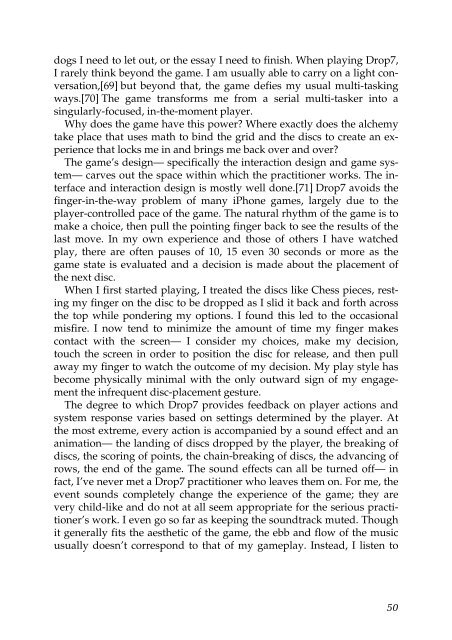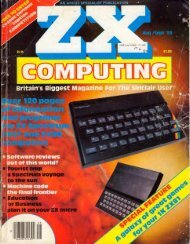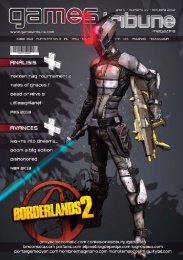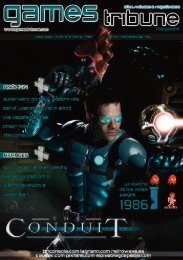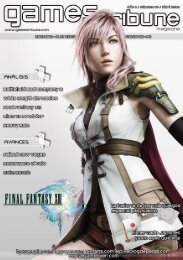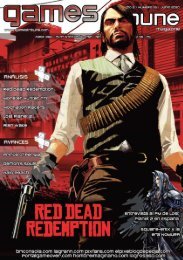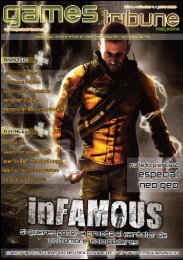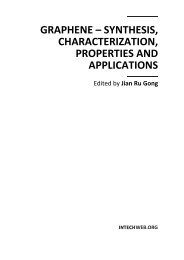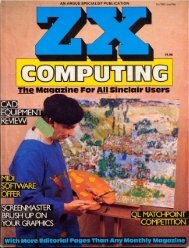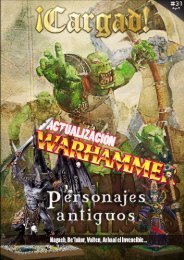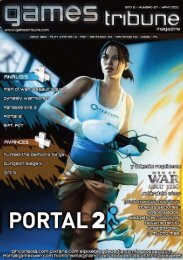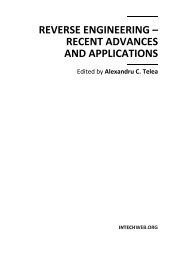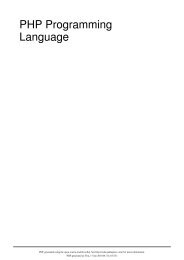Well Played 2.0: Video Games, Value and Meaning - OpenLibra
Well Played 2.0: Video Games, Value and Meaning - OpenLibra
Well Played 2.0: Video Games, Value and Meaning - OpenLibra
Create successful ePaper yourself
Turn your PDF publications into a flip-book with our unique Google optimized e-Paper software.
dogs I need to let out, or the essay I need to finish. When playing Drop7,<br />
I rarely think beyond the game. I am usually able to carry on a light conversation,[69]<br />
but beyond that, the game defies my usual multi-tasking<br />
ways.[70] The game transforms me from a serial multi-tasker into a<br />
singularly-focused, in-the-moment player.<br />
Why does the game have this power? Where exactly does the alchemy<br />
take place that uses math to bind the grid <strong>and</strong> the discs to create an experience<br />
that locks me in <strong>and</strong> brings me back over <strong>and</strong> over?<br />
The game’s design— specifically the interaction design <strong>and</strong> game system—<br />
carves out the space within which the practitioner works. The interface<br />
<strong>and</strong> interaction design is mostly well done.[71] Drop7 avoids the<br />
finger-in-the-way problem of many iPhone games, largely due to the<br />
player-controlled pace of the game. The natural rhythm of the game is to<br />
make a choice, then pull the pointing finger back to see the results of the<br />
last move. In my own experience <strong>and</strong> those of others I have watched<br />
play, there are often pauses of 10, 15 even 30 seconds or more as the<br />
game state is evaluated <strong>and</strong> a decision is made about the placement of<br />
the next disc.<br />
When I first started playing, I treated the discs like Chess pieces, resting<br />
my finger on the disc to be dropped as I slid it back <strong>and</strong> forth across<br />
the top while pondering my options. I found this led to the occasional<br />
misfire. I now tend to minimize the amount of time my finger makes<br />
contact with the screen— I consider my choices, make my decision,<br />
touch the screen in order to position the disc for release, <strong>and</strong> then pull<br />
away my finger to watch the outcome of my decision. My play style has<br />
become physically minimal with the only outward sign of my engagement<br />
the infrequent disc-placement gesture.<br />
The degree to which Drop7 provides feedback on player actions <strong>and</strong><br />
system response varies based on settings determined by the player. At<br />
the most extreme, every action is accompanied by a sound effect <strong>and</strong> an<br />
animation— the l<strong>and</strong>ing of discs dropped by the player, the breaking of<br />
discs, the scoring of points, the chain-breaking of discs, the advancing of<br />
rows, the end of the game. The sound effects can all be turned off— in<br />
fact, I’ve never met a Drop7 practitioner who leaves them on. For me, the<br />
event sounds completely change the experience of the game; they are<br />
very child-like <strong>and</strong> do not at all seem appropriate for the serious practitioner’s<br />
work. I even go so far as keeping the soundtrack muted. Though<br />
it generally fits the aesthetic of the game, the ebb <strong>and</strong> flow of the music<br />
usually doesn’t correspond to that of my gameplay. Instead, I listen to<br />
50


